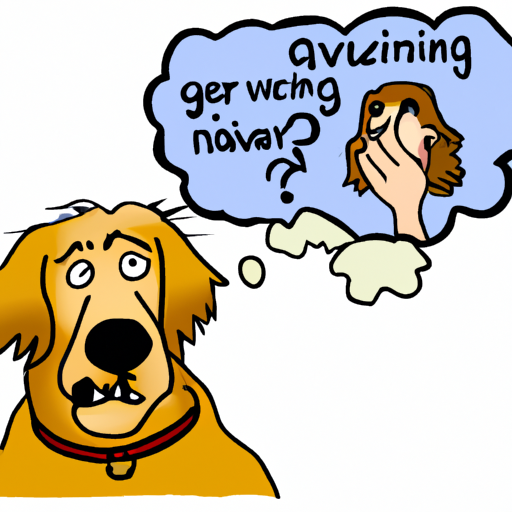As a dog owner, it can be alarming to see your furry friend constantly gnawing at their paws. While there are many reasons a dog might chew or lick their paws, persistent chewing can indicate a more serious problem. In this article, we’ll explore the common reasons why dogs eat their paws and what you can do to help them.
Table of Contents:
1. Understanding the Behavior
2. Possible Causes
3. When to See a Vet
4. Prevention and Treatment
5. FAQs
Key Takeaways:
– Dogs eat their paws for a variety of reasons, including allergies, boredom, and pain.
– It’s important to monitor your dog’s behavior and seek veterinary care if the problem persists.
– There are many treatment options available, depending on the underlying cause of the paw chewing.
Understanding the Behavior
Before we delve into the reasons why dogs chew their paws, it’s important to understand the behavior. Dogs use their mouths much like we use our hands – to explore, play, and often, to soothe themselves. A little paw licking is normal. However, when your dog’s paw chewing becomes obsessive or causes harm, it’s time to seek help.
Possible Causes
There are many potential reasons why your dog is eating their paws. This behavior can be triggered by medical issues, psychological problems, or a combination of both.
Medical Causes
1. Allergies: Allergies are one of the most common causes of paw chewing in dogs. This can be due to food allergies, environmental allergies, or reaction to a certain type of fabric or material. Exposure to allergens can cause itchy, inflamed skin, leading to excessive licking and chewing.
2. Parasites: Fleas, ticks, mites, and other parasites can cause intense itching and discomfort, prompting your dog to chew their paws.
3. Pain or Discomfort: If your dog is experiencing pain in their paws, they may resort to chewing as a way to cope. This could be due to a cut, thorn, or a more serious condition such as arthritis.
Psychological Causes
1. Boredom or Anxiety: Dogs that are under-stimulated or anxious may develop compulsive behaviors, including paw chewing. This is often their way of self-soothing.
2. Stress: Changes in your dog’s environment or routine can cause stress, leading to behavioral changes like paw chewing.
The ASPCA provides a comprehensive guide to understanding canine behavior, which can be helpful in identifying the reasons behind your dog’s paw chewing.
When to See a Vet
If your dog’s paw chewing is persistent, causing harm, or accompanied by other worrying symptoms like limping, redness, swelling, or a change in behavior, it’s important to seek veterinary care. Onetopdog has a variety of resources to help identify when it’s time to see a vet.
Prevention and Treatment
Once you’ve identified the cause of your dog’s paw chewing, you can begin to address it. This might involve dietary changes, medical treatment, or changes to their environment or routine.
For allergies, your vet might recommend a hypoallergenic diet, medication, or topical treatments. In case of parasites, they might prescribe a flea and tick preventative. If the issue is psychological, increased exercise, mental stimulation, or even anxiety medication could help.
In addition, Onetopdog offers a variety of dog care tips, including ways to prevent and treat paw chewing.
FAQs
1. Why is my dog chewing his paws raw?
Persistent paw chewing can lead to raw, inflamed skin. This is typically a sign of severe discomfort and should be addressed by a vet.
2. Can I stop my dog from chewing his paws?
Yes, once you identify the cause of the paw chewing, there are many ways to address the issue. This can range from dietary changes to medication, or behavioral therapy.
3. Are certain breeds more prone to paw chewing?
While any breed can develop this behavior, dogs with allergies, such as the West Highland White Terrier and the French Bulldog, may be more prone to paw chewing.
Understanding why dogs eat their paws is the first step to helping your furry friend. With a bit of detective work and the right care, you can help alleviate their discomfort and stop the paw chewing. The Humane Society offers more insights on managing pet behavior.
Also, check out other Onetopdog articles like how to choose the right chew toys for your dog and managing common dog allergies for additional dog care tips.



